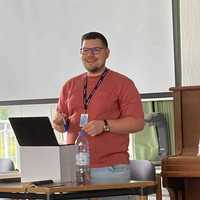
Quentin Heinen
As an adjunct faculty member at Continental Theological Seminary, I bring experience and dedication to the field of missiology, teaching in the French Bachelor’s program. My teaching portfolio includes subjects such as pentecostal intro to mission, the pentecostal history of missions, church growth, cross-cultural communication, and world religions. With a deep passion for fostering understanding across cultures and religious backgrounds, my academic research focuses on the principles and practices of church growth, Discipleship Making Movements (DMM), church planting along with the development of effective interconvictional dialogues in diverse communities from a pentecostal background. My areas of research are pentecostal missiology, Religious studies, ecclesiology and church planting.
My professional journey is multifaceted, reflecting my commitment to both academic excellence and practical ministry. At Continental Theological Seminary, I have the privilege of guiding students through the complexities of missiology, a field that encompasses not only the study of mission history but also the contemporary strategies needed to communicate the Christian faith across different cultural and social contexts. In my courses on church growth and cross-cultural communication, I emphasize the importance of understanding and navigating cultural dynamics, promoting effective communication strategies that respect and honor the cultural identities of all peoples. These courses are designed to equip future leaders with the tools they need to foster growth and health in their church communities, whether they are local or global.
In addition to my teaching responsibilities, I am employed by the Federal Synode, where I play a key role in developing interconvictional dialogues in Brussels and Wallonia. This position involves fostering constructive conversations among various religious and philosophical communities, promoting mutual understanding and collaboration. The interconvictional dialogue initiative is particularly significant in today’s world, where divisions and misunderstandings between different belief systems often lead to conflict. My work at the Synode is dedicated to bridging these gaps, creating spaces where people from different backgrounds can come together to engage in meaningful, respectful dialogue. This dialogue is essential not only for peaceful coexistence but also for the enrichment of all parties involved, as it allows for the exchange of ideas and experiences that can lead to greater empathy and understanding.
My commitment to missional work extends beyond the classroom and the interconvictional initiatives. I am actively involved in church planting efforts in Mons, following the principles of the Discipleship Making Movement (DMM). This model emphasizes the multiplication of disciples through relational networks and simple, reproducible practices that anyone can follow. It is a movement that seeks to empower every believer to be a disciple-maker, creating a grassroots movement of faith and transformation. The church plant in Mons is designed to be a community that reflects these values, fostering a vibrant, dynamic environment where faith can grow organically through relationships and shared experiences.
My work at the intersection of academic research, practical ministry, and interconvictional dialogue reflects a holistic approach to mission that seeks to address both the spiritual and social needs of communities. Whether in the classroom, in dialogue sessions, or in the church plant, my goal is to contribute to a world where faith, understanding, and collaboration can flourish.
My professional journey is multifaceted, reflecting my commitment to both academic excellence and practical ministry. At Continental Theological Seminary, I have the privilege of guiding students through the complexities of missiology, a field that encompasses not only the study of mission history but also the contemporary strategies needed to communicate the Christian faith across different cultural and social contexts. In my courses on church growth and cross-cultural communication, I emphasize the importance of understanding and navigating cultural dynamics, promoting effective communication strategies that respect and honor the cultural identities of all peoples. These courses are designed to equip future leaders with the tools they need to foster growth and health in their church communities, whether they are local or global.
In addition to my teaching responsibilities, I am employed by the Federal Synode, where I play a key role in developing interconvictional dialogues in Brussels and Wallonia. This position involves fostering constructive conversations among various religious and philosophical communities, promoting mutual understanding and collaboration. The interconvictional dialogue initiative is particularly significant in today’s world, where divisions and misunderstandings between different belief systems often lead to conflict. My work at the Synode is dedicated to bridging these gaps, creating spaces where people from different backgrounds can come together to engage in meaningful, respectful dialogue. This dialogue is essential not only for peaceful coexistence but also for the enrichment of all parties involved, as it allows for the exchange of ideas and experiences that can lead to greater empathy and understanding.
My commitment to missional work extends beyond the classroom and the interconvictional initiatives. I am actively involved in church planting efforts in Mons, following the principles of the Discipleship Making Movement (DMM). This model emphasizes the multiplication of disciples through relational networks and simple, reproducible practices that anyone can follow. It is a movement that seeks to empower every believer to be a disciple-maker, creating a grassroots movement of faith and transformation. The church plant in Mons is designed to be a community that reflects these values, fostering a vibrant, dynamic environment where faith can grow organically through relationships and shared experiences.
My work at the intersection of academic research, practical ministry, and interconvictional dialogue reflects a holistic approach to mission that seeks to address both the spiritual and social needs of communities. Whether in the classroom, in dialogue sessions, or in the church plant, my goal is to contribute to a world where faith, understanding, and collaboration can flourish.
less
Related Authors
Ervin Budiselić
University of Ljubljana
Prof. Victor Mwila
DMI St-Eugene University
Jeremy Bohall
Evangelical Theological Seminary, Osijek, Croatia
Mipo Ezekiel Dadang
ECWA Theological Seminary, Jos, Nigeria
J.R. Miller
Grand Canyon University
George True
Assemblies of God Theological Seminary
Dr. Jacob Al Hassan
Southeastern University

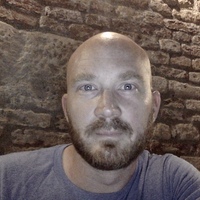

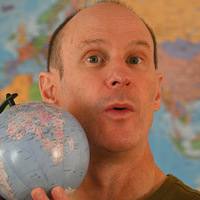

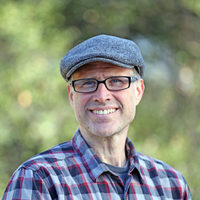

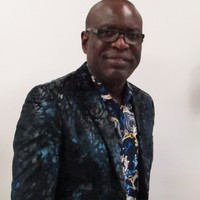

Uploads
Philosophy by Quentin Heinen
A) Première partie : « Que vaut la vie humaine ? »
1. L’heure de la recherche
1.1) Remarque générale sur la notion de « vanité »
1.2) L’inconstance de la sagesse humaine
1.3) Le sage et le fou
1.4) L’inconsistance du travail
1.5) L’inconsistance des plaisirs humains
2) Premier moment de conclusion : la peine
3) Deuxième moment de conclusion : tout est vapeur
B) Deuxième partie : interprétation à partir de l’Ecclésiaste sur la question « que vaut la vie humaine ? »
1) Sur les notions d’ « en-soi » et de « pour-soi »
2) De la question sans réponse
3) La temporalité
4) Retour de la sagesse
5) Relations à autrui
6) Elément fondateur de l’être humain
1. Perspectives aristotéliciennes
A) Les composantes de l’âme chez Aristote
B) Les vertus aristotéliciennes
B.1 La Sophia
B.2 La phronesis
C) Quid de l’eudaimonia chez Aristote
D) Statut de la vertu « la plus excellente et la plus parfaite »
2. Commentaire moderne : critique de Destrée, P.
A) Trois interprétations possibles
B) L’interprétation inclusiviste
B.1 La vertu parfaite comme vertu complète
B.2 La complétude comme critère du bonheur
B.3 Le bonheur comme vie
B.4 Le bonheur complet
C) Critiques de l’interprétation inclusiviste
3. Conclusion
1. Introduction
2. Analyse épistémologique et problématisation de la définition du pardon
A) Origine du pardon - considération tardive - définition du pardon
B) La différence entre excuse et pardon
C) Problématisation de la question du pardon
3. Au coeur de la problématique du pardon
A) L’inconditionnalité du pardon
B) La temporalité du pardon - pour une théorie du temps
4. Des limites du pardon - l’aveu et l’oubli
A) Au-delà de l’aveu
B) Le pardon et l’oubli
C) Critique du pardon philosophique - le pardon quotidien
5. Pardonner au quotidien
A) Au-delà de la règle
B) Au-delà du mal - Redécouvrir la joie de pardonner
C) Choisir de pardonner et au-delà
Church planting by Quentin Heinen
A) Première partie : « Que vaut la vie humaine ? »
1. L’heure de la recherche
1.1) Remarque générale sur la notion de « vanité »
1.2) L’inconstance de la sagesse humaine
1.3) Le sage et le fou
1.4) L’inconsistance du travail
1.5) L’inconsistance des plaisirs humains
2) Premier moment de conclusion : la peine
3) Deuxième moment de conclusion : tout est vapeur
B) Deuxième partie : interprétation à partir de l’Ecclésiaste sur la question « que vaut la vie humaine ? »
1) Sur les notions d’ « en-soi » et de « pour-soi »
2) De la question sans réponse
3) La temporalité
4) Retour de la sagesse
5) Relations à autrui
6) Elément fondateur de l’être humain
1. Perspectives aristotéliciennes
A) Les composantes de l’âme chez Aristote
B) Les vertus aristotéliciennes
B.1 La Sophia
B.2 La phronesis
C) Quid de l’eudaimonia chez Aristote
D) Statut de la vertu « la plus excellente et la plus parfaite »
2. Commentaire moderne : critique de Destrée, P.
A) Trois interprétations possibles
B) L’interprétation inclusiviste
B.1 La vertu parfaite comme vertu complète
B.2 La complétude comme critère du bonheur
B.3 Le bonheur comme vie
B.4 Le bonheur complet
C) Critiques de l’interprétation inclusiviste
3. Conclusion
1. Introduction
2. Analyse épistémologique et problématisation de la définition du pardon
A) Origine du pardon - considération tardive - définition du pardon
B) La différence entre excuse et pardon
C) Problématisation de la question du pardon
3. Au coeur de la problématique du pardon
A) L’inconditionnalité du pardon
B) La temporalité du pardon - pour une théorie du temps
4. Des limites du pardon - l’aveu et l’oubli
A) Au-delà de l’aveu
B) Le pardon et l’oubli
C) Critique du pardon philosophique - le pardon quotidien
5. Pardonner au quotidien
A) Au-delà de la règle
B) Au-delà du mal - Redécouvrir la joie de pardonner
C) Choisir de pardonner et au-delà